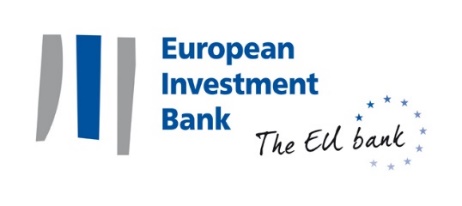 (AGENPARL) - Roma, 16 Novembre 2022
(AGENPARL) - Roma, 16 Novembre 2022(AGENPARL) – mer 16 novembre 2022 PRESS RELEASE2022-490-EN
Sharm El Sheikh, 16th November 2022
Climate change is the biggest global threat, young people in Africa and Europe tell EIB, Debating Africa and Debating Europe
The “Securing our Future” report released today at COP27, spoke to 100 young people from Africa and Europe about what they see as the greatest threats to global security.
Participants raised climate change and its consequences such as food security and severe weather events as their main concerns.
Young people from both Africa and Europe felt there should be more funding for alternative sources of energy, particularly renewables.
The European Investment Bank is partnering with the citizen-engagement platforms, Debating Africa and Debating Europe, on a focus group project asking 100 young people, aged between 18-35, about their concerns around some of the major challenges facing the world today.
As summarised in the report, “Securing Our Future: 100 African & European Voices on Climate Change, Conflict and Security”, the focus groups found that young people from both Africa and Europe are very concerned about the future in a world threatened by climate change. Every single European and most African participants cited it as a major concern while those from Africa who did not, often raised other threats that they perceived as driven by climate change, such as food insecurity, severe weather events, and adverse economic conditions. Participants from both continents were keenly aware of the interlinkages between climate change and other threats such as migration, resource scarcity, and violent conflicts.
The focus groups also explored the role of international institutions and how they should respond to the climate emergency. They found:
Both African and European young people felt there should be more funding for alternative sources of energy, particularly renewables.
Linked to their support for renewables, Europeans wanted to see countries end the use of gas, oil and coal and any subsidies these sources of energy received.
Africans wanted climate change interventions to focus less on the global threat and more on the current impact on Africa, notably the effects on food and energy security.
Participants urged partnerships between governments and institutions on mitigation and adaptation projects.
On November 16 at UN Climate Conference (COP27) in Egypt, at 13.30 EET, we will be holding a panel discussion on “Securing our Future” as well as the latest results of the fifth edition of the EIB Climate Survey. We will gather some of the focus group participants with representatives from all three partner organisations to discuss the findings and solutions with delegates and experts within our network. You can join the discussion hereBackground information:
Participants were divided into three groups: English-Speaking European, English-speaking African, and French-speaking African.
The focus groups were conducted virtually via Zoom and lasted for one hour. Participants were compensated for their involvement. Focus groups were led by an experienced moderator and ranged from 4 to 10 participants each. We have only used first names to protect the anonymity of participants, but several participants chose pseudonyms.
European participants came from Germany, Italy, France, Greece, Slovakia, Portugal, Spain, Poland, Hungary, Czechia, Romania, Bulgaria, the Netherlands, Ireland, Estonia, Slovenia, Latvia, Belgium, and Finland; English-speaking African participants came from Nigeria, South Africa, Kenya, Ghana, and Malawi; French-speaking African participants came from Cameroon, Chad, Benin, Senegal, Algeria, Morocco, Ivory Coast, Mauritania, Tunisia, the Democratic Republic of the Congo, and Mali.
Debating Europe was launched in 2011 and has taken a bottom-up approach from the beginning, with citizens very much in the driving seat of the debate, asking the questions they want answered and putting forward their opinions for politicians and thought-leaders from across the EU and beyond to react to.

